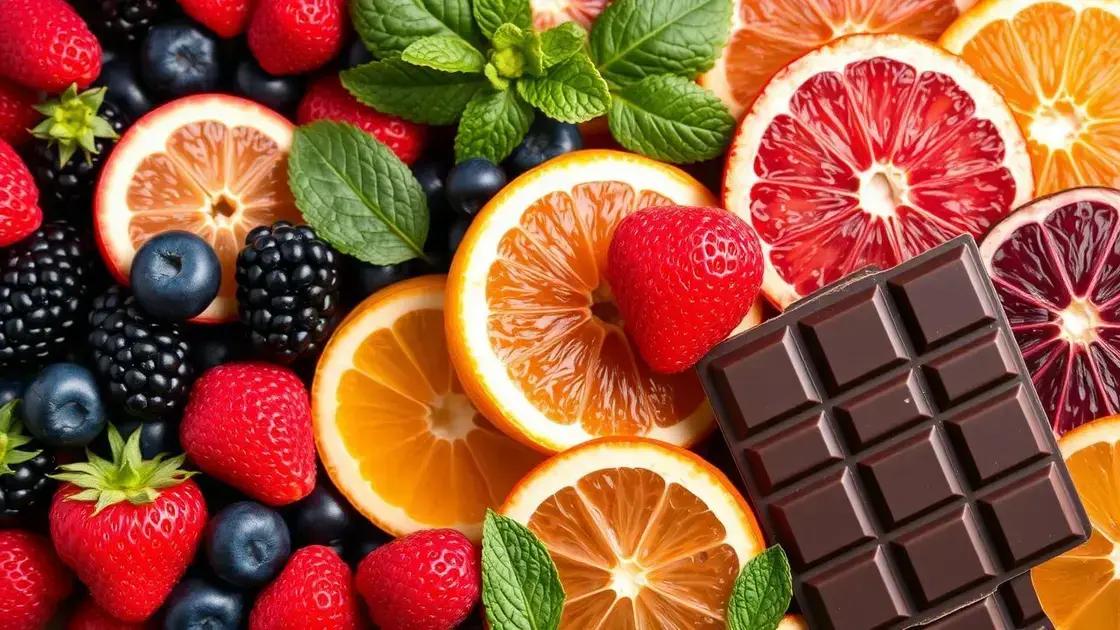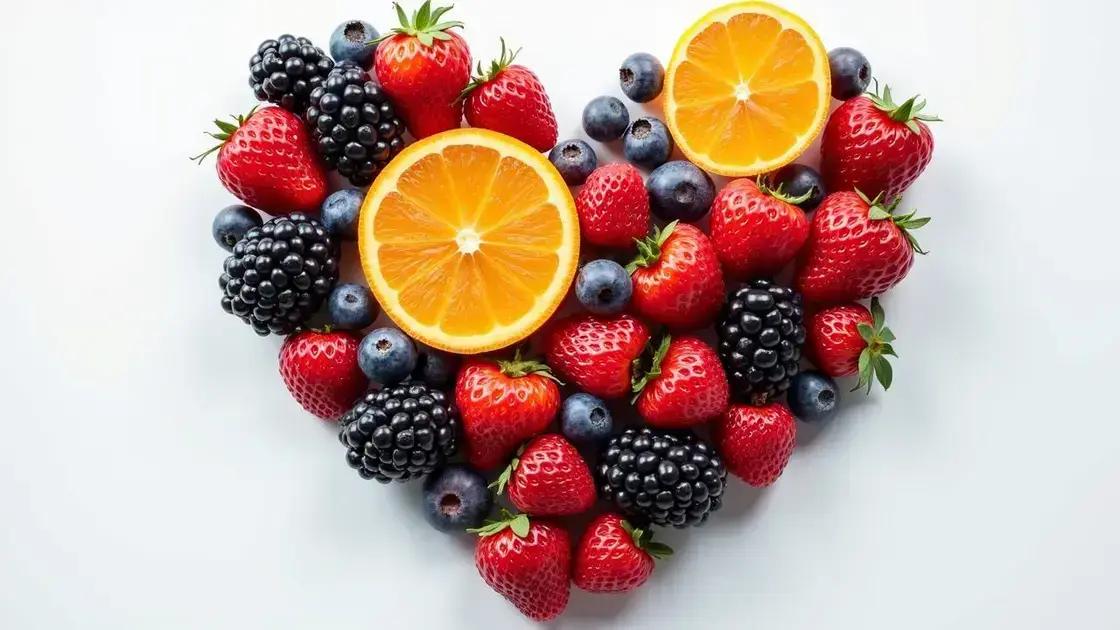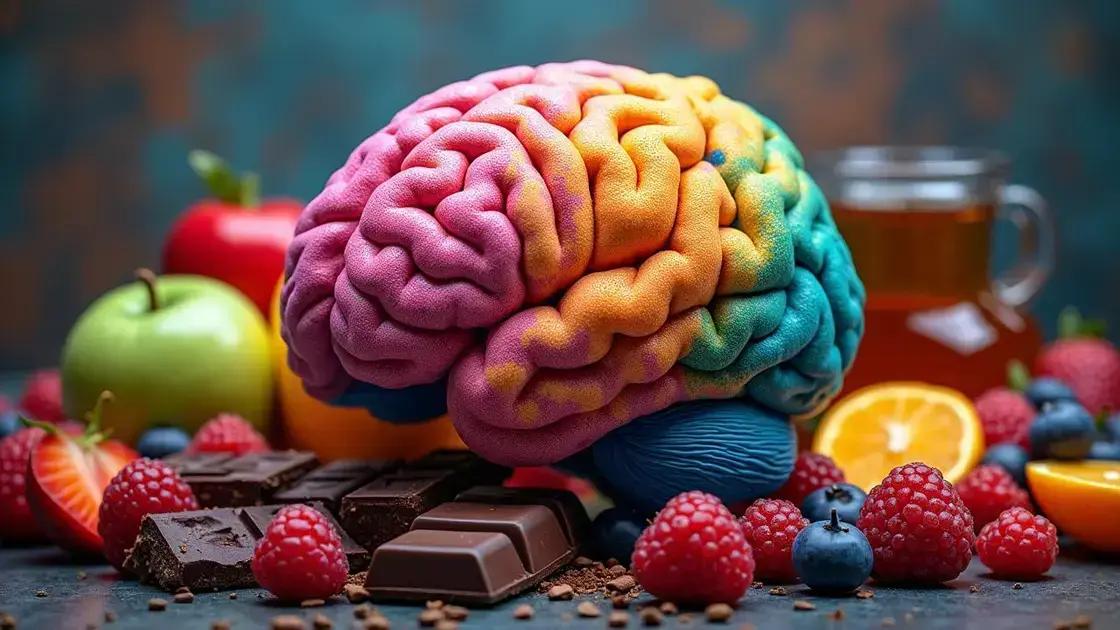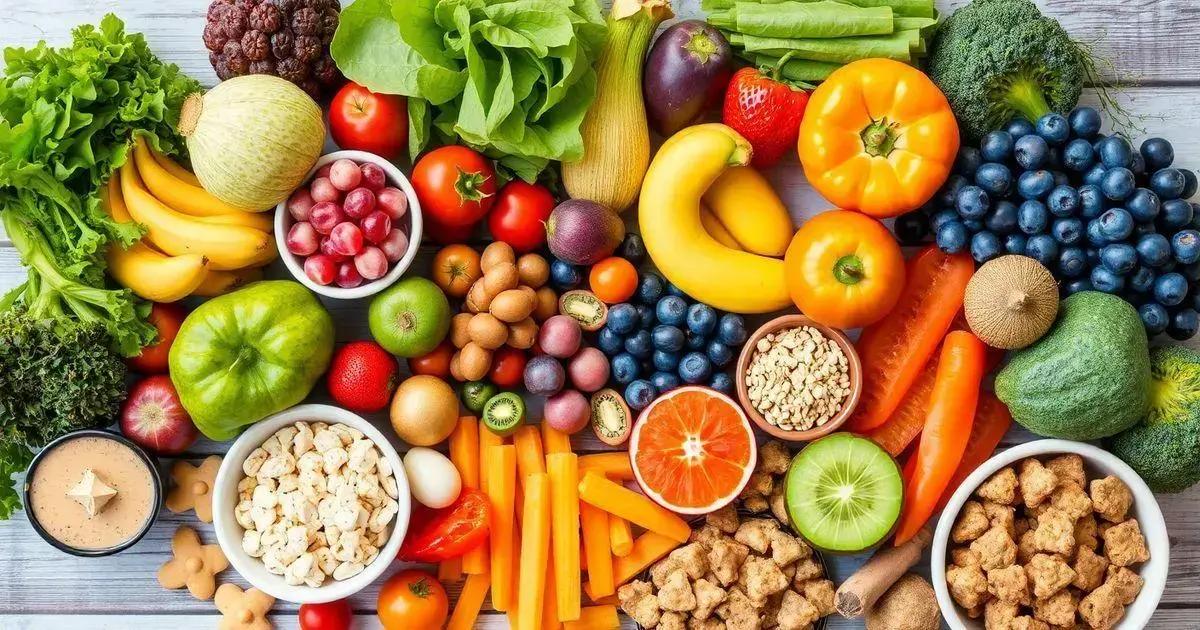Flavonoids are natural compounds found in many fruits, vegetables, and beverages that play a crucial role in improving both brain and heart health. These powerful antioxidants help enhance cognitive function, reduce inflammation, and improve cardiovascular health, making it beneficial to incorporate flavonoid-rich foods like berries, citrus fruits, dark chocolate, and tea into your daily diet.
Flavonoids are powerful compounds found in plants that play a vital role in promoting brain and heart health. By incorporating flavonoids into your diet, you can support your cardiovascular system, boost cognitive functions, and potentially enhance your overall well-being. This article dives into the benefits, sources, and ways to include more flavonoids in your meals for optimal health.
Understanding Flavonoids and Their Sources

Flavonoids are a group of natural compounds found in various plants, known for their potential health benefits. They are part of a larger group called phytonutrients, which are responsible for the vibrant colors in fruits and vegetables. Flavonoids are categorized into several subclasses, including flavonols, flavones, flavanones, isoflavones, and anthocyanins, each with unique properties and health benefits.
Common Sources of Flavonoids
Flavonoids can be found in a wide range of foods. Some of the most abundant sources include:
- Berries: Blueberries, strawberries, and blackberries are rich in anthocyanins, which contribute to brain health.
- Citrus Fruits: Oranges, grapefruits, and lemons contain flavanones that have protective effects on the heart.
- Dark Chocolate: High in flavonols, dark chocolate may support brain function when consumed in moderation.
- Tea: Both green and black tea are excellent sources of flavonoids that can enhance vascular health and brain function.
- Onions: Particularly red onions are known for their high levels of quercetin, a flavonoid with anti-inflammatory properties.
- Red Wine: Contains resveratrol, a type of flavonoid linked to heart health benefits.
Importance of Flavonoids
In addition to adding color and flavor to our meals, flavonoids have been studied for their role in reducing inflammation, combating oxidative stress, and potentially lowering the risk of chronic diseases. Research indicates that diets rich in flavonoids can lead to improved heart health and may support cognitive function, making them a valuable addition to your diet.
Impact of Flavonoids on Heart Health

Flavonoids are recognized for their beneficial effects on heart health, serving as powerful antioxidants that help protect the cardiovascular system. Regular consumption of foods rich in flavonoids may reduce the risk of heart disease through multiple mechanisms.
How Flavonoids Protect the Heart
These compounds support heart health by improving blood vessel function and reducing inflammation. They help to relax the blood vessels, which can enhance blood flow and lower blood pressure. Additionally, flavonoids may help to reduce the oxidation of low-density lipoprotein (LDL) cholesterol, a significant factor in heart disease.
Research Findings
Studies indicate that diets high in flavonoids are associated with a reduced risk of heart-related issues. For instance, a review of multiple studies found that those who consumed large amounts of flavonoid-rich foods had a lower chance of developing heart disease compared to those with lower intake. Foods such as berries, tea, and dark chocolate showed particularly promising results.
Key Flavonoids for Heart Health
Some key flavonoids that promote heart health include:
- Quercetin: Found in onions and apples, it may reduce blood pressure and inflammation.
- Epicatechin: Present in cocoa and tea, it is known to improve blood flow and vascular function.
- Hesperidin: Found in citrus fruits, it may help lower blood pressure and cholesterol levels.
Incorporating Flavonoids into Your Diet
To reap the heart-healthy benefits of flavonoids, consider adding foods like berries, citrus fruits, and dark chocolate to your daily diet. Simple steps such as swapping sugary snacks for a piece of dark chocolate or adding a cup of tea to your routine can make a significant difference in your heart health.
Flavonoids and Cognitive Function Improvement

Flavonoids are not only beneficial for heart health but also play a significant role in improving cognitive function. Numerous studies have shown that these compounds can support brain health and enhance mental performance.
How Flavonoids Improve Brain Function
Flavonoids help improve communication between neurons, promoting better memory and learning. They have antioxidant properties that protect brain cells from damage caused by oxidative stress. This protection is crucial for maintaining cognitive function as we age.
Research on Flavonoids and Cognition
Studies have demonstrated a strong connection between flavonoid intake and cognitive performance. For example, research indicates that individuals who consume higher amounts of flavonoids may experience slower cognitive decline. In one study, older adults who regularly ate foods rich in flavonoids showed improvements in memory and general cognitive function.
Key Flavonoids for Cognitive Health
Several types of flavonoids have been linked to cognitive function. Some of the most effective include:
- Anthocyanins: Found in berries, these may enhance memory and delay age-related cognitive decline.
- Flavanols: Common in cocoa and tea, flavanols improve blood flow to the brain, supporting better brain function.
- Flavones: Present in celery and parsley, they have been shown to improve memory and learning abilities.
Ways to Incorporate Flavonoids for Brain Health
To boost your cognitive function, consider adding flavonoid-rich foods into your daily diet. Snacking on dark chocolate, enjoying a cup of green tea, or mixing berries into your breakfast can all contribute to better brain health. Regularly including these foods in your meals can help support overall cognitive function and potentially protect against age-related decline.
Incorporating Flavonoids into Your Diet

Incorporating flavonoids into your diet is a simple and enjoyable way to enhance your health. These compounds can be easily added to your meals and snacks to support both brain and heart health.
Start with Fruits and Vegetables
Fruits and vegetables are rich sources of flavonoids. To maximize your intake, aim to fill half your plate with colorful options. Some excellent choices include:
- Berries: Blueberries, strawberries, and blackberries are packed with anthocyanins.
- Citrus Fruits: Oranges, grapefruits, and lemons provide flavanones.
- Leafy Greens: Spinach and kale contain various flavonoids beneficial for overall health.
Enjoy Beverages Rich in Flavonoids
In addition to solid foods, beverages can also be a great source of flavonoids. Consider replacing sugary drinks with:
- Green Tea: Offers a good amount of flavanols.
- Purple Grape Juice: Contains resveratrol, a heart-friendly flavonoid.
- Red Wine: In moderation, it provides beneficial flavonoids but should be consumed wisely.
Snack on Flavonoid-Rich Foods
Making healthier snack choices can also boost your flavonoid intake. Try these tasty options:
- Dark Chocolate: Choose varieties with at least 70% cocoa for maximum benefits.
- Nuts: Almonds and hazelnuts contain flavonoids and are very nutritious.
- Whole Grain Products: Foods like oatmeal and whole grain bread include flavonoids as well.
Experiment with Recipes
Get creative in the kitchen by incorporating flavonoid-rich ingredients into your meals. You can add:
- Fresh Berries: Top your breakfast oatmeal or yogurt with berries.
- Citrus Juice: Use lemon or orange juice as a dressing for salads.
- Herbs and Spices: Use parsley and thyme in your cooking to add flavor and health benefits.
By making these changes, you can easily increase your daily flavonoid intake and enjoy the health benefits they provide.
Embracing Flavonoids for Better Health
Incorporating flavonoids into your diet can significantly enhance both your brain and heart health. These powerful compounds found in fruits, vegetables, and beverages offer numerous benefits, from improving cognitive function to protecting cardiovascular health.
By making small dietary changes, such as adding more colorful fruits and vegetables to your meals, enjoying flavonoid-rich beverages, and snacking wisely, you can easily boost your flavonoid intake. Creative meal preparation can further enhance your experience with these healthy ingredients.
Embracing a diet rich in flavonoids not only supports your well-being but also contributes to long-term health. Consider making flavonoids a fundamental part of your daily nutrition for a healthier, more vibrant life.
FAQ – Frequently Asked Questions about Flavonoids
What are flavonoids?
Flavonoids are natural compounds found in plants that are known for their antioxidant properties and health benefits, especially for heart and brain health.
How can flavonoids improve heart health?
Flavonoids help improve blood vessel function, lower blood pressure, and reduce inflammation, which can lead to better heart health and a lower risk of heart disease.
Which foods are high in flavonoids?
Foods rich in flavonoids include berries, citrus fruits, dark chocolate, tea, and various vegetables like onions and kale.
Can flavonoids enhance cognitive function?
Yes, studies suggest that flavonoids can support memory and overall cognitive function by protecting brain cells and improving blood flow to the brain.
How can I incorporate more flavonoids into my diet?
You can add more flavonoids by consuming a variety of fruits and vegetables, choosing flavonoid-rich snacks, and enjoying beverages like tea and dark chocolate.
Is there a recommended daily intake of flavonoids?
While there is no specific daily intake recommendation, aiming for a diverse diet rich in fruits, vegetables, and whole grains can help ensure adequate flavonoid consumption.













